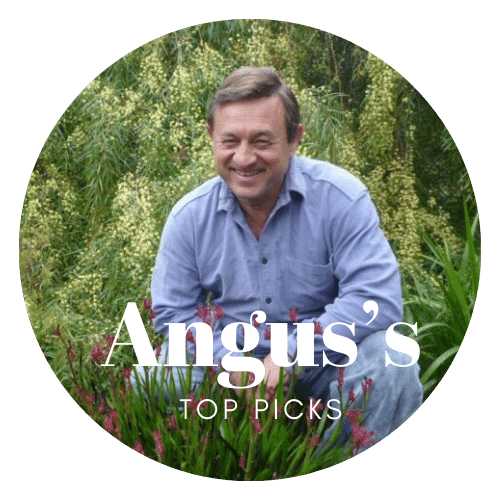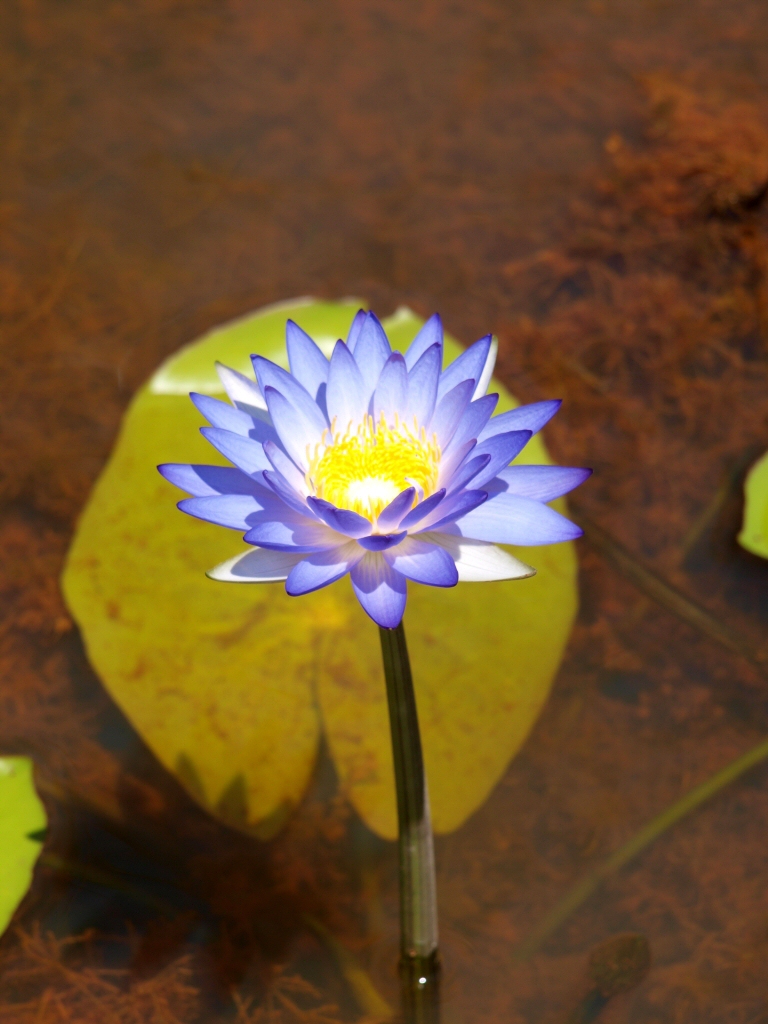This floating perennial herb with magnificent blue-violet blooms is native to northern Australia, growing in billabongs and rivers. The plant grows from a rhizome in the muddy bottom of the water body, with floating leaves and delicately scented flowers borne from late summer to winter in its natural environment. The plant can be cultivated from the rhizome, planted in a pot of rich organic matter and submerged in water 30 – 60cm deep. Cover the soil with a layer of gravel to stabilise. The pond should be at least 1 square metre to maintain water quality and contain some oxygenating plants.
The blue lily is a staple food for Aboriginal people in northern Australia, most parts of the plant are eaten.
Picture provided by Philip Clarke, from his new book Discovering Aboriginal Plant Use: Journeys of an Australian Anthropologist

